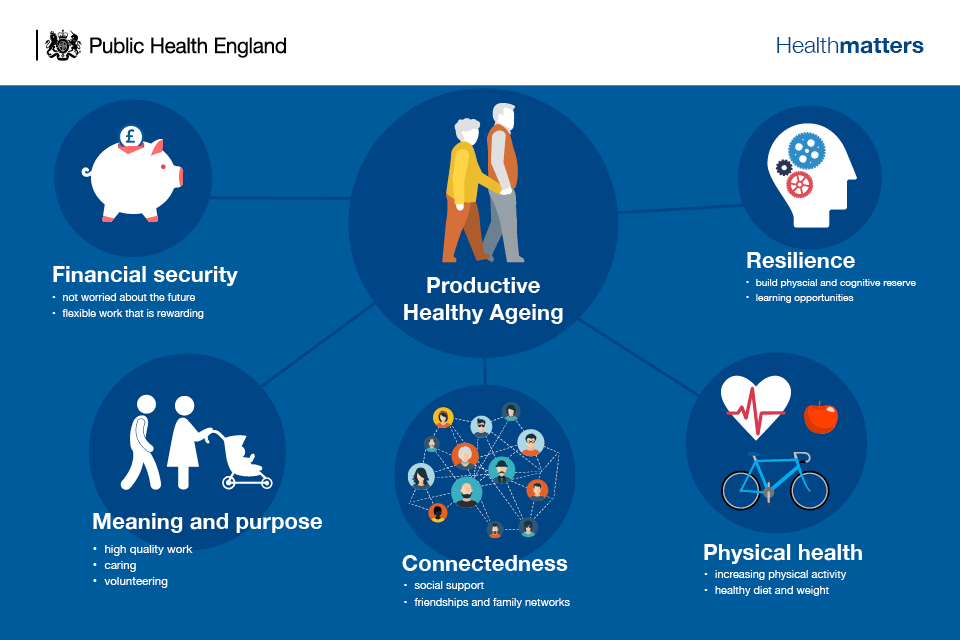Would you like to increase your chances of living a long and healthy life?
If so, see how our evidence-based health information can help you.
Here are some of the most recent health articles we've published:
More and more people in the UK are living to 100. Why is this? Is it down to lifestyle choices, to our genes or to something else?
Are there parts of the world where people live longer - and can we learn anything from them?
What is hypertension? What are the risk factors - and how can we reduce them?
Why do some people look younger than others? Can we control how our looks age, or is it all in the genes? How can we help ourselves look younger for longer?
Do men and women have different reactions to stress biologically and psychologically? If so, does this have health implications?
Health apps - a help or a hindrance?
What is the evidence, for and against - for both physical and mental health?
Can exercise help reduce your risk of cancer? Can it increase your chances of surviving cancer?
What are the effects of Vitamin D deficiency at different stages in our lives? What are the best natural sources of Vitamin D?
What is anorexia and how serious is it? Who is most at risk? How can the risks be reduced?
What determines our food choices?
Find out more about taste influences before and after birth, including childhood eating behaviours, ultra-processed foods, ‘nutrition transition,’ and the cost of living.
What is yoga? What evidence us there of its health benefits? Are there any health risks?
Why is maintaining a healthy gut important for our overall health, and how we can maintain the all-important ‘gut microbiome'?
What is the Nordic Diet? How does it compare with the Mediterranean Diet? Is it easy to follow outside Scandinavia?
What is soya? What soya products are available in the UK? What is the evidence in favour of adding soya products to our diet? And might soya supplements sometimes be harmful for us?
What sleep problems might we experience as we get older? How might this affect us? What can we do to minimise or manage this?
What is organic food? Is it safer or more nutritious than conventionally farmed food? What food safety tips should we follow?
What are the possible health benefits of a Vegetarian Diet? On the downside, might you be missing out on some important nutrients?
Does our skin age because of what is going on inside our bodies, or what is going on outside? What can we do to slow this ageing?
Might eating less help us live longer? What evidence is there, and are there any health risks if we eat less?
Does this help explain why people in Japan live longer – and is the adoption of more Western diets helping or hindering?
Are active brains more resistant to dementia?
The ‘cognitive reserve’ hypothesis suggests that if we stay mentally active throughout our lives – for instance by developing new interests and skills – then this activity develops our brain and builds some form of reserve which helps protect against, or compensate for, dementia.
Do you find it difficult to get your weight down? If so, can keeping physically fit reduce the health risks? Can keeping slim compensate if you don’t do much exercise?
Can we delay the process of ageing, so that we live longer and enjoy more years of good health?
The Health Action Research Group works to encourage this nationally, by encouraging both government and health professionals to recognise that prevention is better than cure.
Our Age Watch project works to encourage healthy ageing at an individual level, by providing evidence-based information to help each of us see what we can do to improve our chances of living a long and healthy life.
Follow us at @HealthAction_UK
The Health Action Research Group is a not for profit limited company - number 10753014, recognised as a charity by HMRC
Registered office: Dalton House, 60 Windsor Avenue, London, SW19 2RR
www.healthactionresearch.org.uk info@healthactionresearch.org.uk
For information about our Age Watch project, contact us at info@agewatch.org.uk


